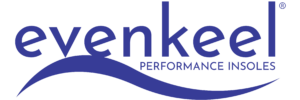
Health Savings Account
Health Savings Account is a tax-advantaged savings account designed to help individuals save for medical expenses. Here are some key points about HSAs:
- Eligibility: To be eligible for an HSA, you must be enrolled in a high-deductible health plan (HDHP).
- Contributions: Contributions to an HSA can be made by you, your employer, or both. These contributions are tax-deductible, and there are annual contribution limits set by the IRS.
- Tax Benefits:
- Contributions to an HSA are made with pre-tax dollars.
- Earnings on the account grow tax-free.
- Withdrawals for qualified medical expenses are also tax-free.
- Qualified Medical Expenses: HSAs can be used to pay for a wide range of medical expenses, including doctor's visits, prescriptions, dental care, vision care, and certain over-the-counter medications.
- Portability: HSAs are portable, meaning you own the account, and it stays with you even if you change jobs or retire.
- Rollovers: Unlike flexible spending accounts (FSAs), unused funds in an HSA roll over from year to year, so you don't lose the money you don't spend.
- Investment Options: Many HSAs offer investment options similar to retirement accounts, allowing you to potentially grow your savings over time.
HSAs can be a valuable tool for managing healthcare costs and saving for future medical expenses, especially when used in conjunction with a high-deductible health plan. Your health plan may cover the cost of your custom orthotics with your Health Savings Account. Contact your insurance company for more information.
Flex Spending Accounts
A Flexible Spending Account (FSA) is a type of savings account that provides specific tax advantages to help cover healthcare costs. Here’s how it works:
- Pre-Tax Contributions: Employees can contribute a portion of their earnings to an FSA on a pre-tax basis. This means the money is deducted from their paycheck before taxes are applied, reducing their overall taxable income.
- Use for Eligible Expenses: The funds in an FSA can be used to pay for eligible medical expenses, such as copayments, deductibles, prescription medications, and other healthcare costs not covered by insurance.
- Annual Limit: There is a limit on how much can be contributed to an FSA each year. For 2024, the contribution limit is $3,050 per year for healthcare FSAs.
- "Use-It-or-Lose-It" Rule: One key feature of FSAs is that the funds must be used within the plan year. Any unused funds at the end of the year are forfeited, although some plans may offer a grace period or allow a limited amount of funds to be carried over to the next year.
- Employer-Sponsored: FSAs are typically offered by employers as part of a benefits package. Employees decide how much they want to contribute for the year during their benefits enrollment period.
- Tax Advantages: Since contributions to an FSA are made with pre-tax dollars, participants can save money on federal, state, and Social Security taxes.
Overall, an FSA can be a useful tool for managing out-of-pocket healthcare costs while taking advantage of tax savings.
Contact Us
If you have any questions about your flex spending or health savings accounts contact your health insurance company. Still not sure what your options are? Please contact us: info@evenkeelinsoles.com
EvenKeel Insoles
1180 Beacon St.
Suite LLD
Brookline, MA 02446
